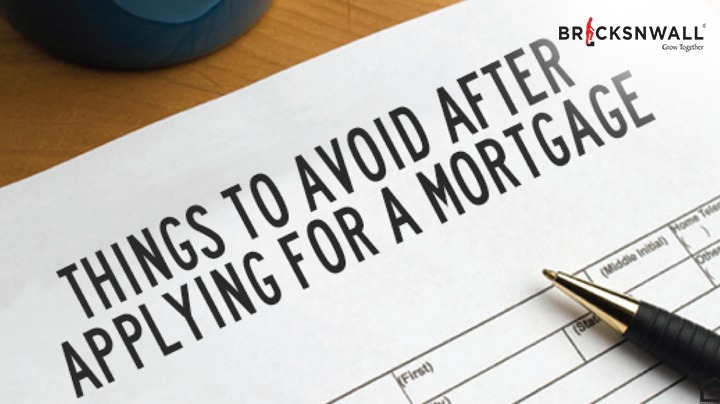What You Should Avoid Once You Applying For a Mortgage ?
Koheli

Introduction
Applying for a mortgage is a big decision. The lender will want to know about your financial situation, and you'll need to provide a lot of documentation.
There are many things to consider while applying for a mortgage, but one of the most crucial things to keep in mind is to avoid these typical errors:
1. Applying for too much mortgage debt
2. Failing to research lenders and interest rates
3. Not budgeting for closing costs
4. Not saving for a down payment
5. Not understanding the mortgage process
6. Not getting pre-approved
7. Signing off on documents without reading them
Mistakes not to do while applying for a mortgage
When applying for a mortgage, you must make sure everything runs smoothly. These could cost you time and money and could even disqualify you from getting a mortgage at all:
1. Only apply for a few mortgages at a time. This will make it look like you're desperate and could lead to lenders not taking you seriously.
2. Don't lie or exaggerate your income on your mortgage application. This is a fraud, and you could be prosecuted for it.
3. Remember to factor in your expenses when calculating how much mortgage you can afford. This includes your monthly bills and things like childcare and commuting costs.
4. Wait to withdraw money from your bank account before applying for a mortgage. This could look like you're trying to hide something, leading to your application being rejected.
5. Don't agree to a mortgage that's beyond your means. You'll be in trouble if you can't keep up with the payments, and you could even lose your home.
Don't Change Jobs or Quitting Without Consulting First
Only change jobs or quit after consulting first. Your mortgage loan officer will need to review your employment history on your loan application. If you switch jobs, you might have to wait until you've been on your new job for a certain number of months before you're eligible for a home loan.
Quitting your job could also have negative consequences for your home loan. If you voluntarily leave your job, the lender could classify it as a "reduced payment history event," which could lead to a higher interest rate on your mortgage and less favorable terms.
Don't Make Any Big Purchases or Open New Accounts
Only make big purchases or open new accounts when your mortgage application is processed. This may seem common sense, but you'd be surprised how many people make this mistake.
Your lender will do a thorough credit check when you apply for a mortgage. Your application can be turned down, which will lower your credit score. So, wait till your mortgage is approved if you intend to get a new automobile or apply for a credit card.
Why You Should Avoid Making Late Payments
When you're a homeowner, you must ensure you keep up with your mortgage payments. Late payments can hurt your credit score and put you at risk of becoming delinquent on your loan. And if this happens, it could mean foreclosure or severe financial consequences.
It's also important to understand that late payments will be recorded to credit agencies and will be on your report for seven years. This can make it difficult for you to get approved for other loans in the future, not to mention the fact that creditors may view you as a higher risk and charge higher interest rates as a result.
Your best bet is to stay away from late payments altogether. It would be beneficial if you also explored how to automate your mortgage payment so that it is always paid on time. Many lenders offer alternatives that allow you to accomplish this. That way, you can ensure that your payments are always up-to-date and reduce the chances of facing any negative impacts on your credit score.
Why You Should Refrain from Co-Signing Another Loan
Once you've applied for a mortgage, you must refrain from co-signing another loan or taking out additional debt while your new loan is processed. Taking on an immense debt burden could lead to mortgage approval problems since lenders want to ensure you take on only a little responsibility.
The lender can also look at your debt-to-income ratio, which gives them an idea of how much your monthly income will go toward any loan payments you may have. If the number is too high, it can signal that you may be overextending yourself financially and could indicate that you're not a good fit for the loan.
While getting someone else involved in your loan process may be tempting, it's best to avoid co-signing another loan, as this could cause problems with getting approved for the mortgage.
Conclusion
Avoid these costly mistakes when you e ready to apply for a mortgage. By following these simple tips, you'll be on your way to securing the best mortgage for your needs.




